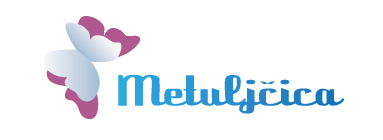 |
Metuljčica - naša klepetalnica
Medsebojni pogovori bolnikov in svojcev
|
| Poglej prejšnjo temo :: Poglej naslednjo temo |
| Avtor |
Sporočilo |
Pikapolonica
Pridružen/-a: 24.06. 2006, 12:56
Prispevkov: 658
Kraj: Domžale
|
 Objavljeno: 10 Avg 2007 08:47 Naslov sporočila: Smernice za nosecnost pri hipotirozi/hipertirozi (ang) Objavljeno: 10 Avg 2007 08:47 Naslov sporočila: Smernice za nosecnost pri hipotirozi/hipertirozi (ang) |
 |
|
HIPO
Hypothyroidism and Pregnancy -- Guidelines
Hypothyroidism in the mother and/or the unborn baby can have significant adverse health effects on the unborn baby, and so maternal hypothyroidism should be avoided.
If a woman is diagnosed with hypothyroidism prior to pregnancy, her thyroid medication should be adjusted so that the TSH level is no higher [color=red]than 2.5 µU/ml prior to becoming pregnant.
If a woman is diagnosed as hypothyroid during pregnancy, she should be treated without delay, with the goal of restoring her thyroid levels to normal as quickly as possible. During the first trimester, the TSH should be maintained at less than 2.5 µU/ml (and less than 3.0 µU/ml in the second and third trimesters.) After initial diagnosis, thyroid function tests should be reevaluated within 30 to 40 days.
By the time a woman is four to six weeks pregnant, her dose of thyroid medication will usually need to be increased, potentially by as much as 30 to 50 percent.
Weekly Pregnancy Guide
Free personalized pregnancy guide, fetal development images, and more.
www.pregnancyweekly.com
A woman with thyroid autoimmunity – i.e., she has previously tested positive for thyroid antibodies –who has normal TSH levels in the early stages of her pregnancy is still at risk of becoming hypothyroid at any point in the. She should be monitored regularly through the pregnancy for elevated TSH.
Subclinical hypothyroidism – a TSH level above normal, with normal free T4 levels – is associated with negative health outcomes for both the mother and baby. Treatment of the mother has been shown to help ensure a healthier pregnancy. Treatment has not, however, been proven to affect the baby’s long-term neurological development. The experts believe that the potential benefits of treatment do outweigh any potential risks, however, and recommend treatment in women with subclinical hypothyroidism.
After childbirth, most women with hypothyroidism will need their dosage of thyroid hormone replacement reduced.
--------------------------------------
HIPER
Hyperthyroidism and Pregnancy: Guidelines
If lower-than-normal TSH levels are detected during pregnancy, a woman should be evaluated to determine the cause of the hyperthyroidism. Hyperthyroidism can be triggered by Graves’ disease and toxic nodules, and it can also temporarily develop as a result of hyperemesis gravidarum – a condition of pregnancy that causes severe morning sickness. The diagnosis is made by determining if a woman has a goiter, and/or tests positive for thyroid antibodies.
If a pregnant woman is hyperthyroid due to Graves’ disease or nodules, the woman should either begin antithyroid drug treatment (if she’s newly diagnosed), or, if she’s an existing patient, have her dosage adjusted so that free T4 levels remain in the normal range for someone who is not pregnant.
The antithyroid drug of choice (especially during the first trimester) is propylthiouracil, because methimazole has a slightly higher – though very small -- risk of birth defects.
Methimazole can be used, however, if propylthiouracil is not available or if a woman doesn’t tolerate it well, or has a reaction to PTU.
If a woman has a severe negative reaction to antithyroid drugs, requires very high doses to control her hyperthyroidism, or has uncontrolled hyperthyroidism despite treatment, surgery may be recommended. The surgery would usually be recommended during the second trimester, when it is least likely to endanger the pregnancy. Treating subclinical or mild hyperthyroidism does not appear to improve the outcome of pregnancy. Treating subclinical hyperthyroidism is therefore not recommended in the guidelines, as it can have potentially negative effects on the unborn baby.
Radioactive iodine (I-131) should never be given to any woman who is or who might be pregnant.
-------------
PROTITELESA
Antibodies, Graves' Disease and the Newborn: Guidelines
TSH receptor-stimulating or TSH receptor-binding antibodies in the mother can cross the placenta, and affect the baby’s thyroid. If a woman is positive for these antibodies during pregnancy, her baby can be born with hyperthyroidism. These antibodies should, therefore, be measured in women who have Graves’ disease, or who have had previous newborns who developed Graves’ disease. Treatment of the mother with antithyroid drugs may be necessary to reduce the risk to the newborn.
If a woman with elevated TSH receptor-stimulating or TSH receptor-binding antibodies is treated with antithyroid drugs, fetal ultrasound evaluation should be conducted. This ultrasound should look for evidence of thyroid dysfunction in the developing baby – including slow growth and enlarged thyroid, among other signs.[/color] |
|
| Nazaj na vrh |
|
 |
Pikapolonica
Pridružen/-a: 24.06. 2006, 12:56
Prispevkov: 658
Kraj: Domžale
|
 Objavljeno: 10 Avg 2007 08:53 Naslov sporočila: Objavljeno: 10 Avg 2007 08:53 Naslov sporočila: |
 |
|
Skratka, ker je bilo nekaj vprašanj na temo nosečnosti in kako pogosto testirati TSH. Priporoča se, da je pred zanositvijo in v prvem trimesecju TSH pod 2.5, v drugem in tretjem tromesecju pa pod 3.0. TSH je potrbno testirati na 30 dni. Ob jemanju zdravil je potrebno odmerek navadno po 4 -6 tednih nosecnosti povecati. Zdavljenje se priporoca tudi pri latentni hipotirozi, ce so prisotna protitelesa, tsh pa je se znotraj normalnega obmocja. To naj bi zagotavljalo varjenjso nosecnost za mater in otroka.
Lp Pika |
|
| Nazaj na vrh |
|
 |
|
|
Ne, ne moreš dodajati novih tem v tem forumu
Ne, ne moreš odgovarjati na teme v tem forumu
Ne, ne moreš urejati svojih prispevkov v tem forumu
Ne, ne moreš brisati svojih prispevkov v tem forumu
Ne ne moreš glasovati v anketi v tem forumu
|
|


